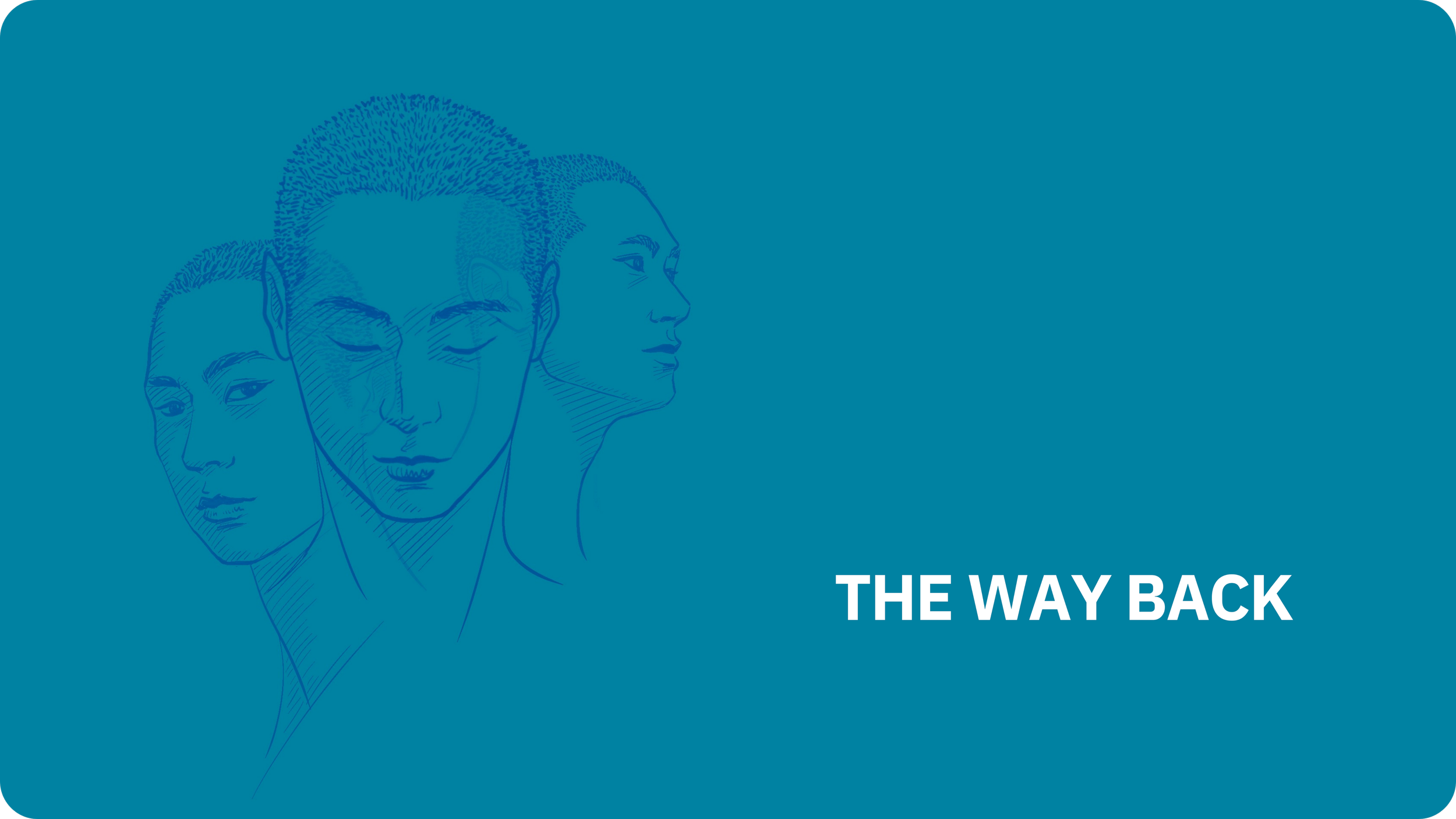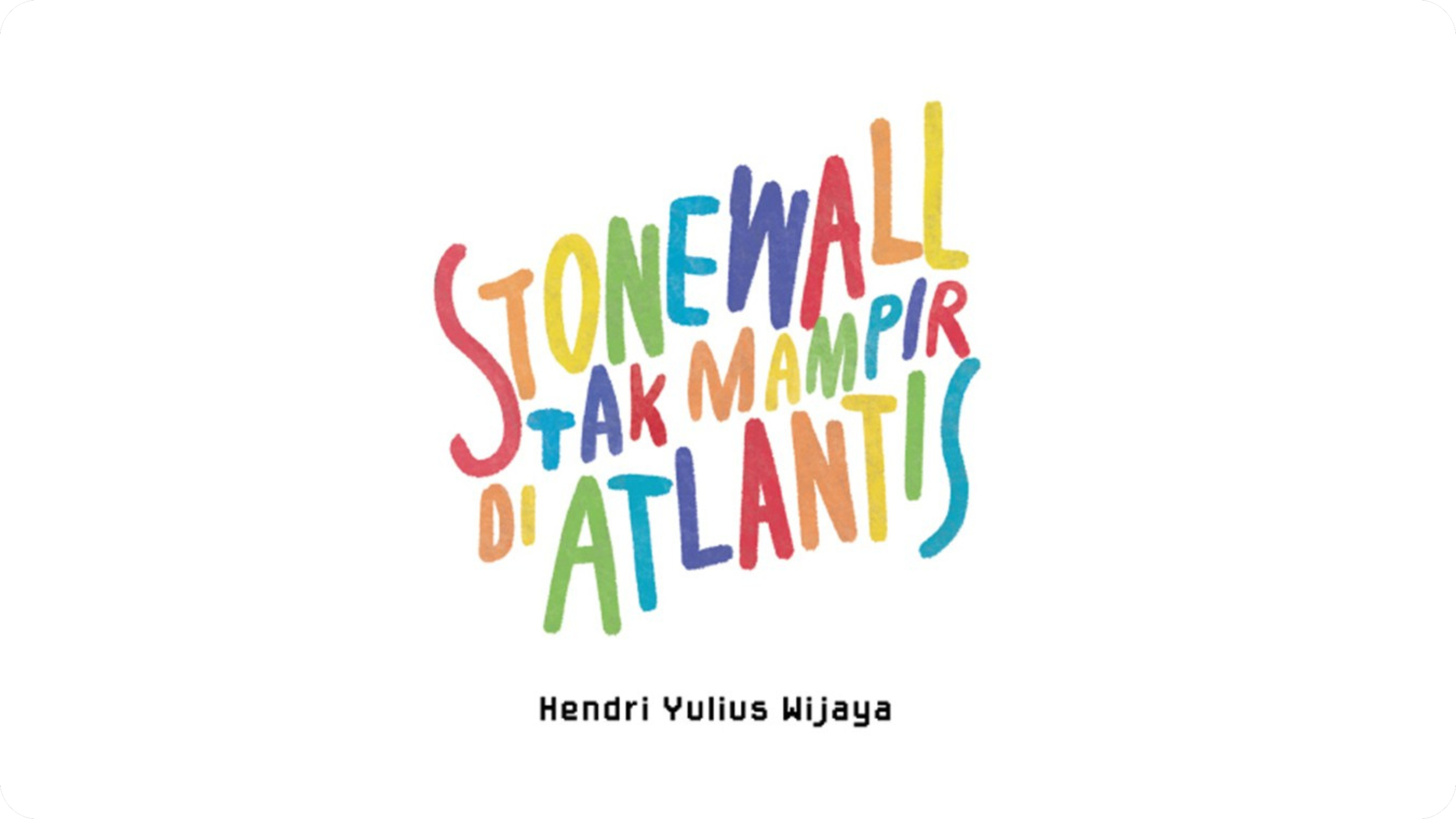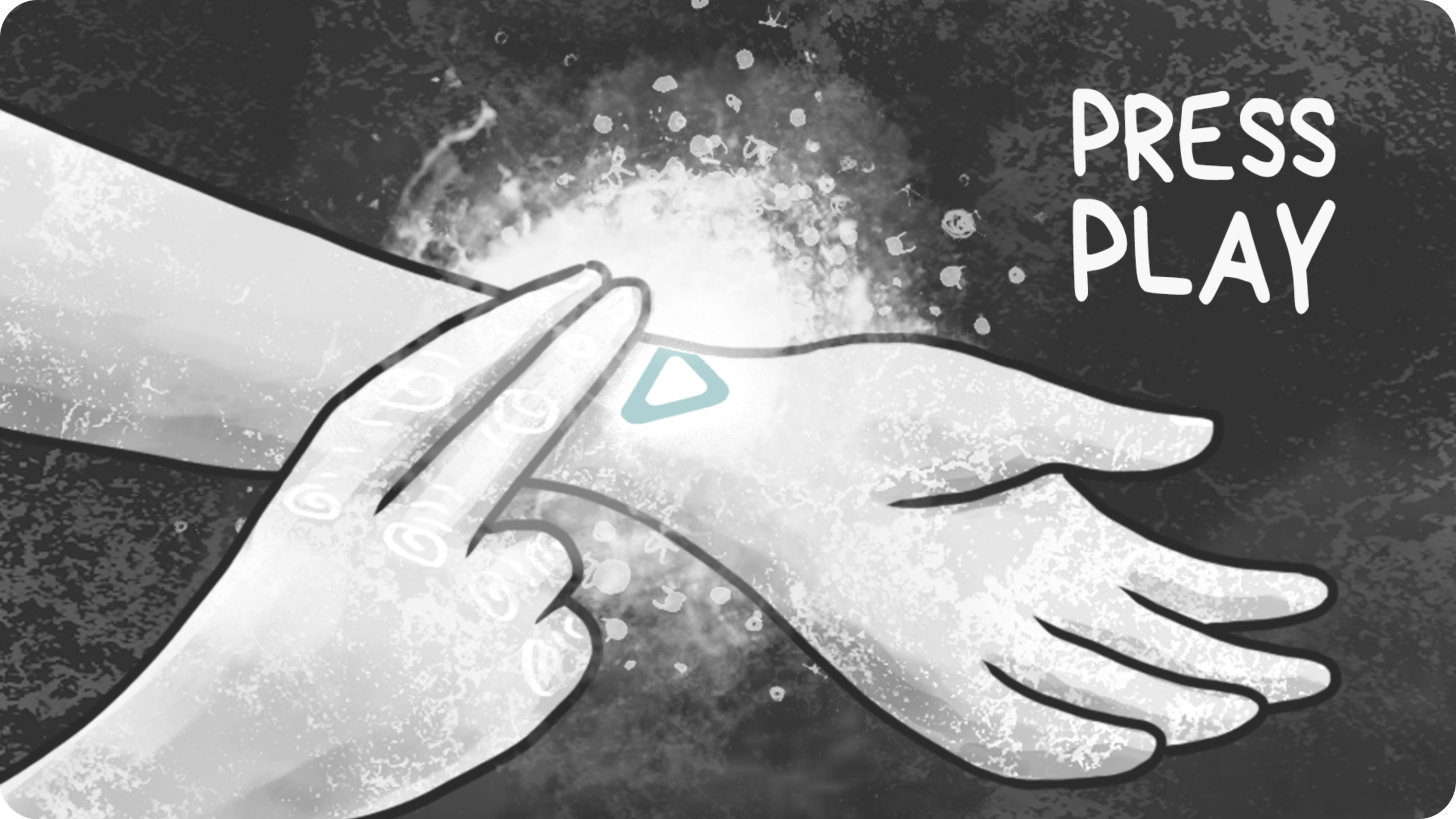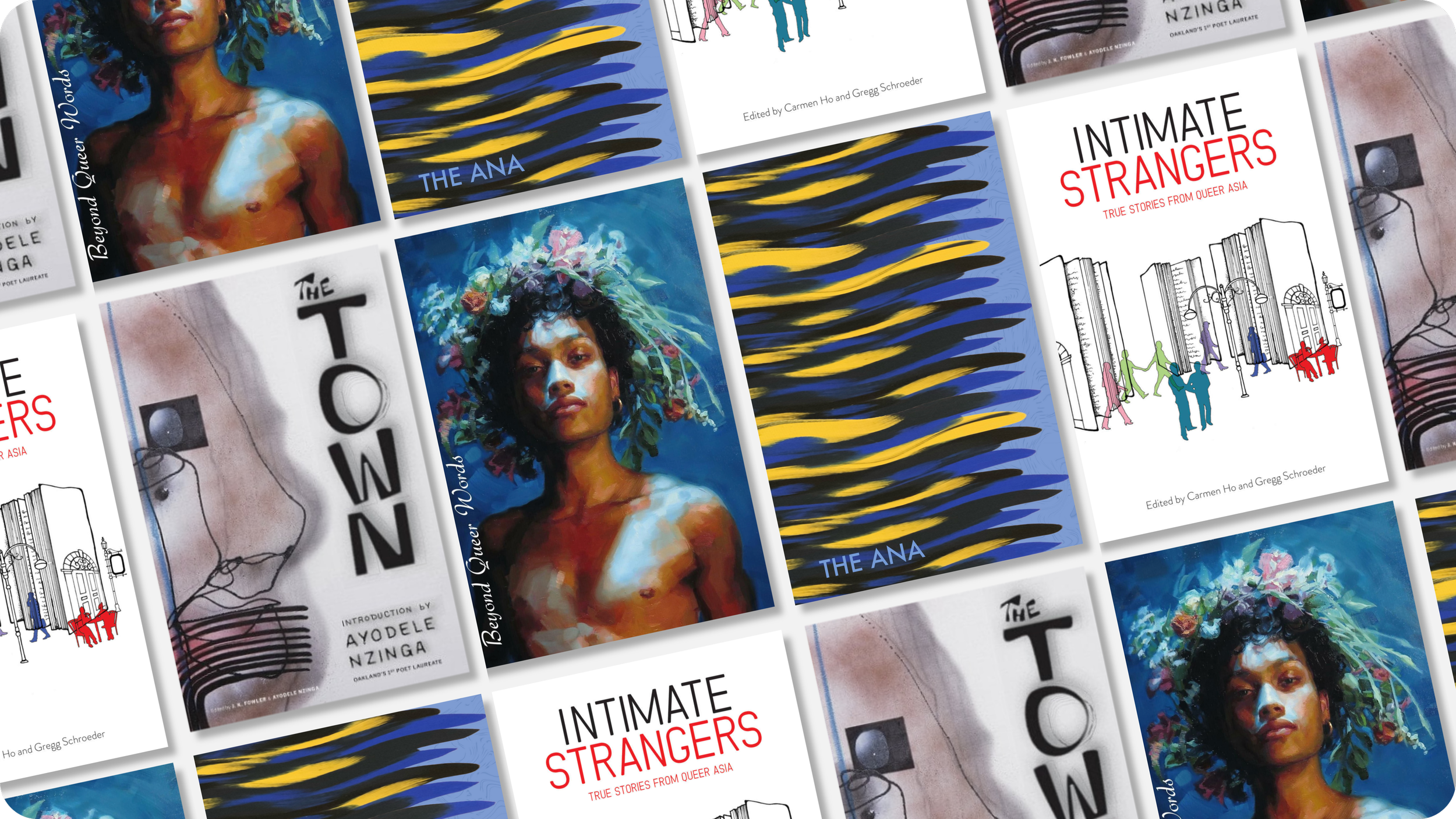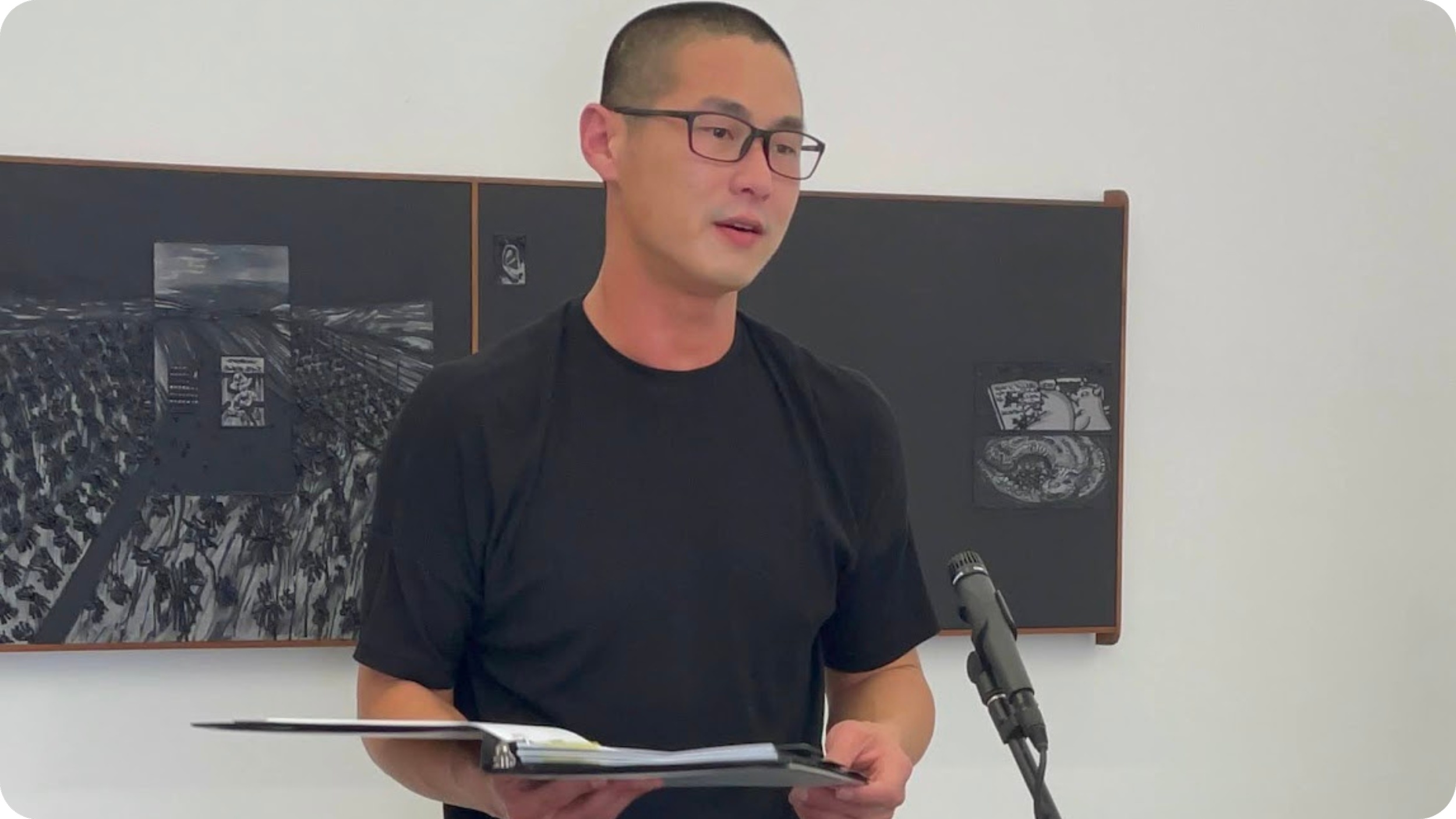THE WAY BACK
Chapbook
Told through direct and deceptively simple language, Edward Gunawan’s hybrid collection The Way Back confronts the legacy of inherited and inflicted traumas as a queer Asian immigrant. Blending memoiristic prose and spoken-word poetics to navigate himself through the choppy post-colonial cross-currents of diasporic identity, sexuality, and transnationality, he invites all of us to chart our own true course back to self, to love, to home.
Winner of Start a Riot! Prize — Foglifter Press
Silver Medal for Collections — Northern California Publishers and Authors Book Awards
-
Now available on Amazon, Bookshop.org, or directly from publisher.
-
This moving collection asks us to listen deeply to the rhythms of memory, desire, love, migration, and family.
Throughout, the prose and lyric poems dance across multiple geographies of home to cinematically capture all that is 'brutally broken and still beautiful.
— Craig Santos Perez,
author of from unincorporated territory [åmot], winner of the National Book Award for Poetry
Edward Gunawan’s powerful collection The Way Back heralds the arrival of a thrilling new voice in American poetry and transnational English literature.
Gunawan’s poems speak on behalf of ‘love refugees,’ queer and Asian transplants seeking safety and acceptance, ‘panhandlers… Begging for the loose change of democracy.’
These evocative works express longing, desire, disappointment, joy, humor, and above all hope. An intelligent and empowering book well suited for this historical moment.
— May-lee Chai,
author of Useful Phrases for Immigrants,
winner of the American Book Award
[A] triumph of hybridity poetry—a collection of forms and structures that align fragmented experience into something that has a direction, that forms an electrified current, that points.
[T]his unpredictable mixing and morphing of forms can reflect the active and intelligent responses necessary for the disenfranchised, like the queer immigrant in these poems, giving it a sense of always-shifting balance, and hypervigilant awareness of the self in the environment. These in-between spaces allow for flexibility, pivoting, and the opportunity to approach moments of great suffering and rigidity with the possibility of alternative outcomes.
Gunawan’s compassionate, articulate work will certainly function as a sign post of hope for both young writers and people struggling to navigate toward a life and identity that feels like home.
— Anna Laura Reeve,
The Racket Journal
Gunawan's works weave in the complexities of being Chinese Indonesian and queer in diaspora, and they resonate strongly with me as a queer Chinese Indonesian activist.
They are extremely rare contributions to narratives by and about Chinese Indonesians because of their queer sensibilities, and deserving to be read by those who wish to reflect on their multiple minority positions.
— Dédé Oetomo,
founder of Indonesian queer rights organization GAYa NUSANTARA
The Way Back asks why exactly we believe in the things we do… Traditional morals enacted by default are represented and tested through Gunawan’s polarizing imagery that didactically guides us from arrival to transcendence.
Gunawan poetically kindles simultaneous burning themes of identity, colonization, nationalism and reveals its controlling mechanisms manifested in family and oneself.
Epigraphs and homage to poets Craig Santos Perez, Natalie Diaz and Audre Lorde encapsulates an affinity for diasporic and intersectional writing that Gunawan so masterfully engages in… [T]here is no mistaking Gunawan’s commanding voice that one is compelled to listen to again and again.
— Oli Villescas,
The Ana Magazine
In The Way Back, Gunawan captures a kind of freedom that forgives, but does not forget, the pain that comes from personal, historical, and intergenerational traumas, and from unfulfilled longings.
A queer Indonesian Chinese author who grew up in a period of anti-Chineseness in Indonesia and is now based in the United States, Gunawan weaves a rich tapestry of dreams, sensibilities, and stories in his vital first chapbook. He asks what it means to write one’s wishes, and even if, as the speaker says in “Insufferable Joy,” it may be “a lifetime's accumulation of Waiting. And Yearning. And Longing. For something that would never come,” The Way Back transforms such deferrals into a space filled with doors stepping into past, present, and future possibilities.
As the book title suggests, this is a collection of work that recuperates. There are, in fact, many ways back: these returns, written by Gunawan with tenderness, humor, and vulnerability, contain the weight of sadness, but ultimately, the fullness of love.
— Viola Lasmana,
transpacific media scholar
